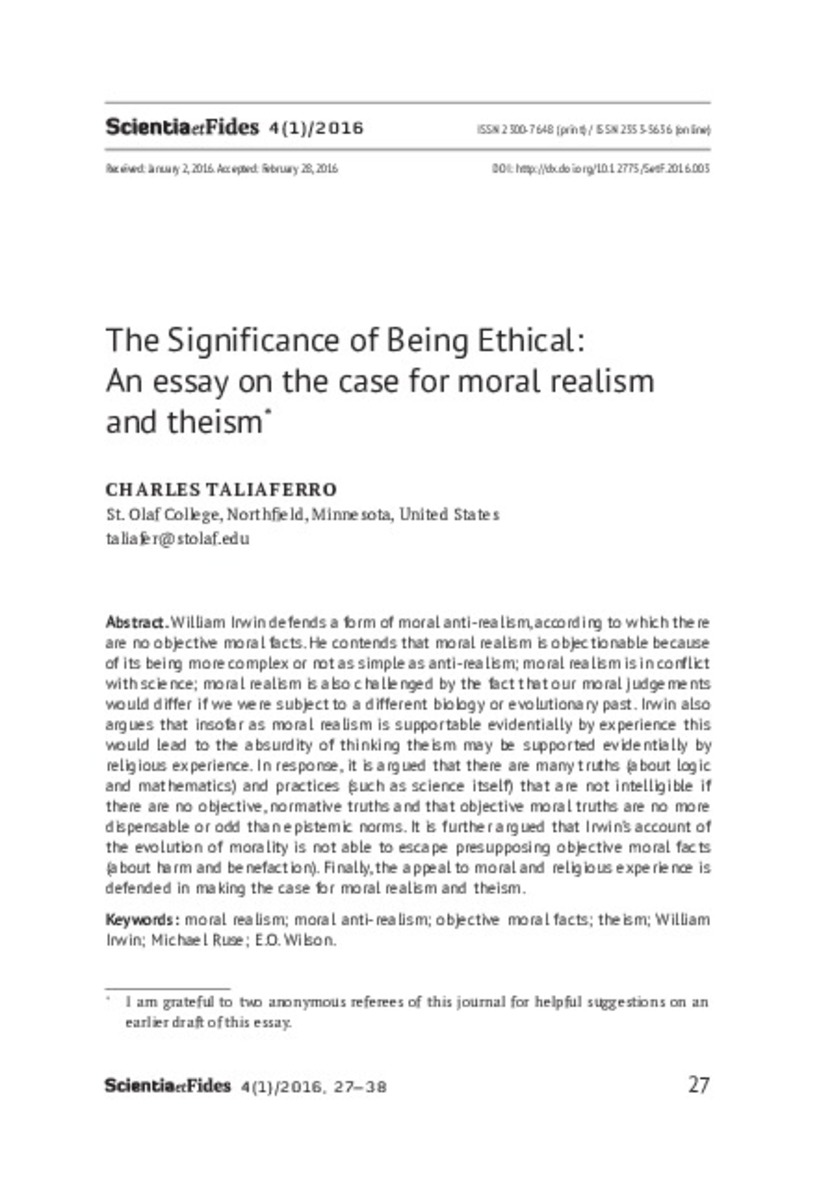The Significance of Being Ethical: An essay on the case for moral realism and theism
Palabras clave :
E.O. Wilson
Michael Ruse
William Irwin
Theism
Moral anti-realism
Objective moral facts
Moral realism
Fecha de publicación :
2016
Editorial :
Servicio de Publicaciones de la Universidad de Navarra
Cita:
Taliaferro, C. (2016). The Significance of Being Ethical: An essay on the case for moral realism and theism. Scientia et Fides 4, nº 1, pp. 27-38
Aparece en las colecciones:
Estadísticas e impacto
0 citas en

0 citas en

Los ítems de Dadun están protegidos por copyright, con todos los derechos reservados, a menos que se indique lo contrario.







